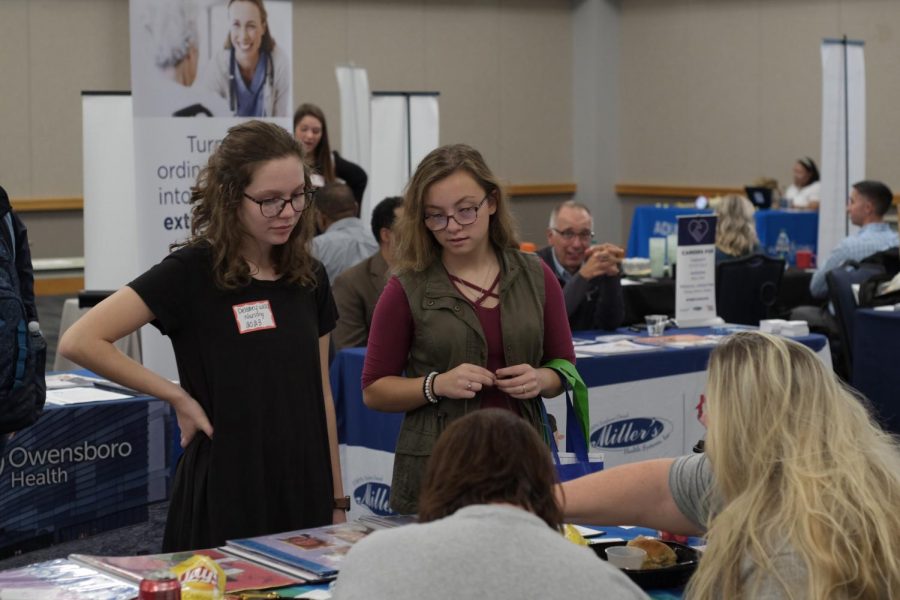Demand for health professions rising
January 14, 2020
The need for health professions is on the rise.
Employment in health professions is expected to rise 14% from 2018 to 2028 according to a study from the U.S. Bureau of Labor Statistics.
Nurse practitioners are the second most common health professional job in the U.S.
Dean of the College of Nursing and Health Professions Ann White said she thinks there is going to be a huge need in some other health profession areas that the college offers.
“I think we’ve got to talk about the baby boomers,” White said. “They are getting older and they’re going to need more health care as they have more chronic problems.”
Some examples can be occupational therapy and occupational therapy assistance.
“A lot of these baby boomers that we’ve been talking about are going to be at home and they’re going to need help and assistance when they get into that home environment,” White said.
Other professions that could be on the rise is respiratory therapy and dental hygiene.
There are also baby boomers that are in health professions and they’re going to retire.
“We just saw some data from the state of Indiana,” White said. “There were over 2,000 nurses in the state of Indiana that reported that they were going to retire within the next two years and that didn’t capture every single nurse who practices in Indiana.”
The nursing department at USI’s class of 2018 and 2019 have had a 100% pass exam rate the first time they took the licensure exam.
There are about 2,300 students in the College of Nursing and Health Professions, according to White. This includes graduate and undergraduate students.
Something that sets USI’s programs different from that of other universities are the faculty.
“We have a dedicated faculty who practice so they are current on all of their information that they’re sharing with students,” White said.
The program also offers many hours of clinical and fieldwork, such as internships, that are offered to students.
White said something that students take what they’ve learned in the classroom and apply it to a different setting such as a hospital, nursing home or community health center.
The college has students do this as early as possible so they are experiencing what it is like to be in their profession. For example, a respiratory therapist in a hospital environment or a dental hygiene major could go to a community environment and practice their profession while in school.
“The last thing that I want anybody to do is get to their senior year and say, maybe this isn’t where I need to be,” White said. “They’ve spent a lot of time and energy and resources. So we try to get them into that environment as soon as we can.”
Along with experience, students get to practice in the simulation center. This is normally done before they go in the community setting so students can get more practice and have a better understanding of what is expected of them.
“I think we have some of the best health profession programs in the state and in the tri-state,” White said.
White said that she is proud that a large number of graduates are employed in the state of Indiana. Eighty-four percent of graduates from the university’s clinical program such as nursing, respiratory therapy, dental hygiene, etc. are employed in the state.
“The mission of this university is to prepare our future workforce,” she said.
Junior health informatics major Elaine Miller came in as a nursing major, but realized she preferred the business side of health professions.
“I decided I didn’t want to do the bedside contact with the patient so I just decided to do informational and data analysis with the patient,” Miller said.
When she changed her major, her advisor was supportive and made sure this is what she wanted to do.
Miller said that she’s always wanted to give back to the community and that the Health Professions College helped her as she went.
“They want to make sure you’re in your field as soon as possible,” she said.







